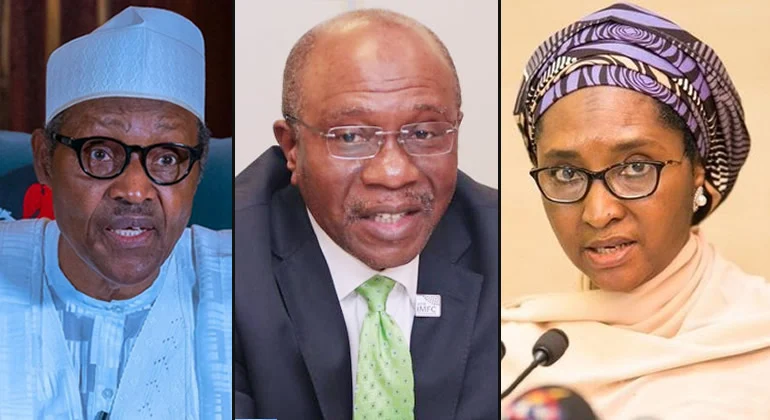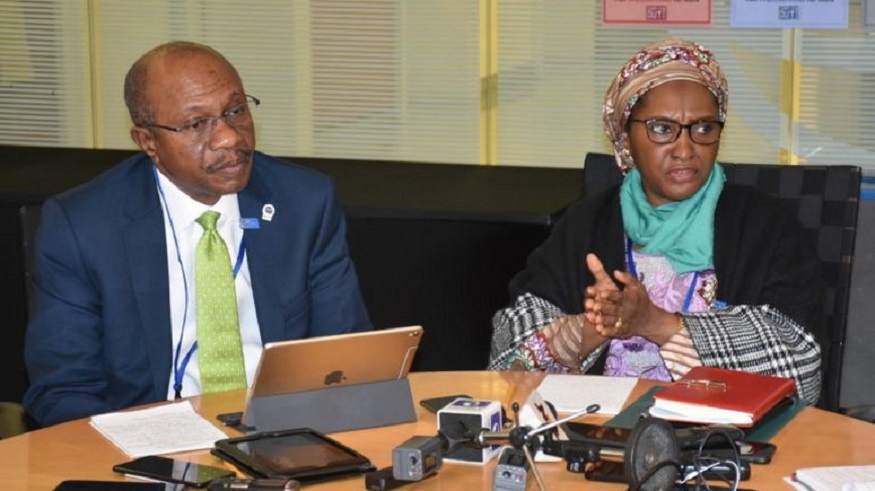Nigeria’s Central Bank Governor, Mr Godwin Emefiele (left) with Minister of Finance, Budget & National Planning, Mrs Zainab Ahmed
According to latest report reaching our Business Desk, Nigeria’s budget deficit has risen to humongous N30.58 trillion in the last seven years of the All Progressive Congress leadership of Nigeria led by President Mohammadu Buhari with borrowing from the Central Bank of Nigeria (CBN) hitting N19.01 trillion by April 2022.
The federal government budget deficits were largely financed from the ways and means from the CBN, which grew to N19.01 trillion in April 2022 from N648.26 billion as of June 2015. The government also resorted to borrowing from domestic debt market and International Capital Market, and bilatral and multilateral agencies to plug the budget deficit in the period under review.
The deficits were incurred from the third quarter of 2015 and the first four months of 2022 as the budget expenditure of the government hit N54.98 ttrillion within the seven years period.
Detail analysis showed that the present administration spends the bulk of its fiscal expenditure on on personnel, debt services and the least on capital. The government spent a total of N23.66 trillion on personnel costs, pensions, overhead costs, presidential amnesty programme, other service-wide votes, and special interventions.
About N14.13 trillion was spent on servicing domestic and foreign debts, while at least N10.47 trillion was spent on capital expenditure in the seven years period.

President of Nigeria Muhammadu Buhari, Nigeria’s Central Bank Governor, Mr Godwin Emefiele (left) with Minister of Finance, Budget & National Planning, Mrs Zainab Ahmed
The reports from the Budget Office showed that the deficit financing has been largely financed by government borrowing. The budget implementation report for Q4, 2015 said, “The FGN has arranged to raise short-term credit from the CBN through the mechanism of Ways and Means subject to a ceiling of 12.5 per cent of FGN’s revenue.
“This amount will be retired and therefore not considered as new borrowing outside the borrowing approved to finance the budget deficit. However, due to current fiscal challenges, the CBN had agreed to increase the Ways and Means advances threshold hence the FGN’s ability to raise N615.96 billion from this source.”
Since allowance for raising the ceiling was made, total borrowing from the CBN has hit N19.01 trillion in April 2022 from N648.26 billion as of June 2015. Also, the nation’s total debt profile hit N41.06 trillion as of March 2022 from N12.12 trillion, according to the Debt Management Office.
A document titled ‘Public Consultation on the Draft 2023 – 2025 MTFF/FSP’ presented by the Minister of Finance, Budget & National Planning, Mrs Zainab Ahmed, said, “Revenue generation remains the major fiscal constraint of the federation. The systemic resource mobilization problem has been compounded by recent economic recessions.”





